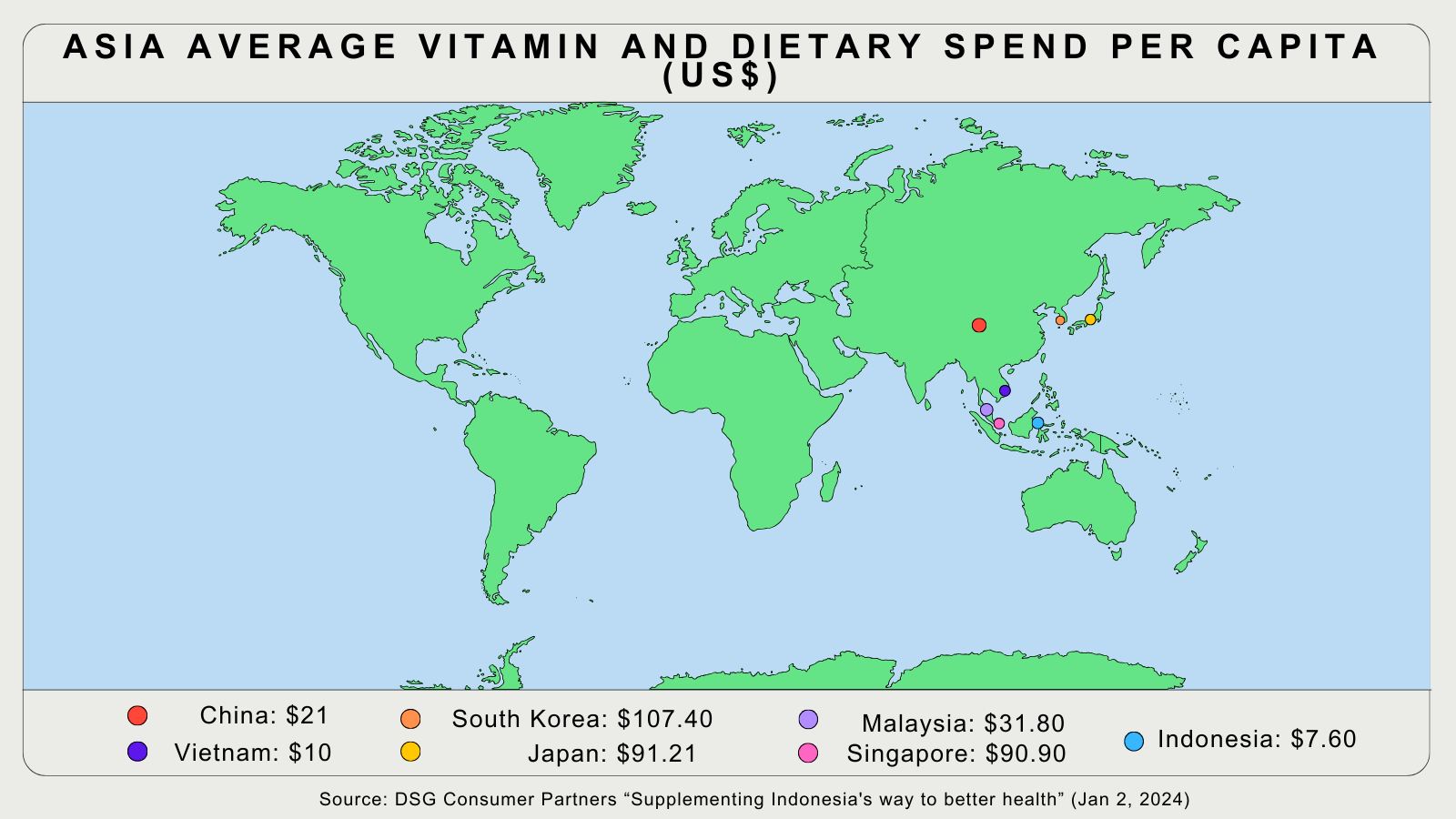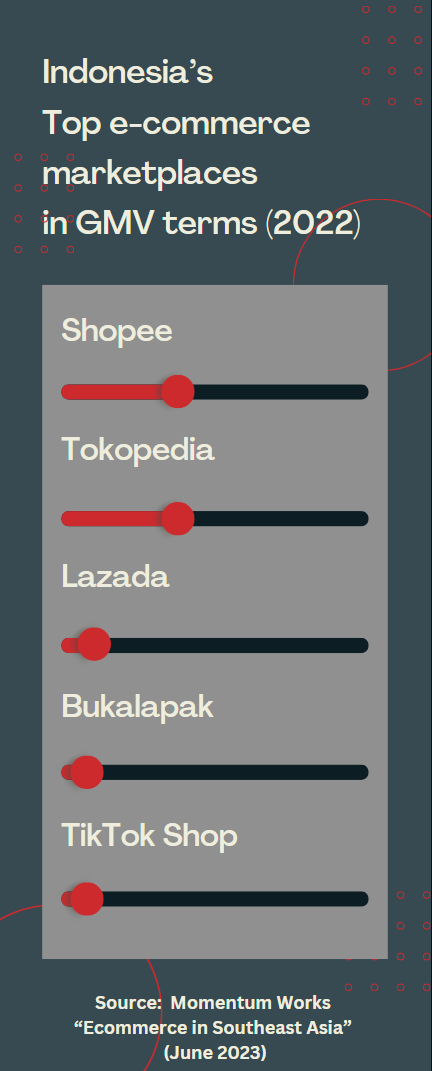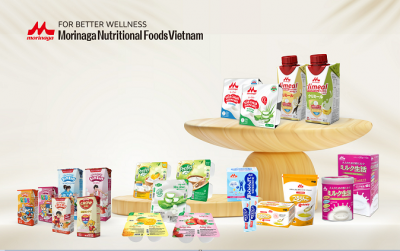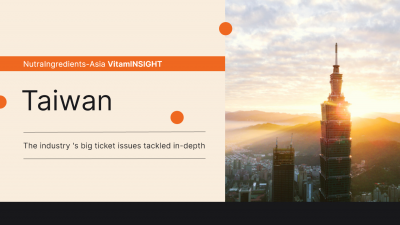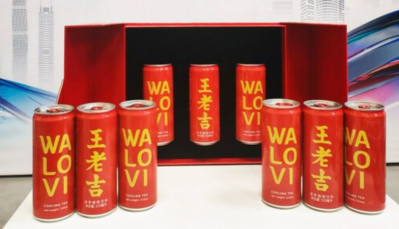VitamINSIGHTS
Breaking barriers: How to crack Indonesia’s supplement market with new formats, retail channels, and digital power – Exclusive analysis
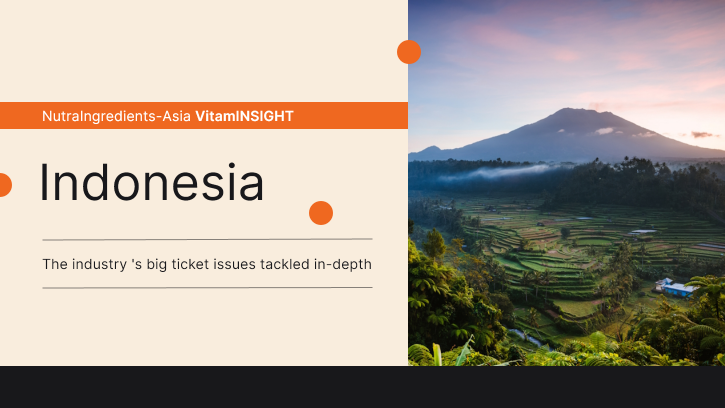
Indonesia has the largest consumer market in the SEA region, but the dietary supplement sector remains relatively untapped when compared to Thailand, Malaysia, and Singapore.
Data mapped out by consumer goods investment firm DSG Consumer Partners showed that Indonesia’s vitamin and dietary supplement market was the largest in the region at US$2.2bn in 2022.
However, its vitamin and dietary supplement consumption per capita remained low at US$7.60, behind Singapore, Thailand, Malaysia, and Vietnam.
While the COVID-19 pandemic has led to increased use of dietary supplements in Indonesia, especially multivitamins, vitamin C, and vitamin D3, the habit of supplementation is not yet ingrained in the general population.
According to the local supplement association Asosiasi Pengusaha Suplemen Kesehatan Indonesia (APSKI) and supplement brand Youvit, in the post-COVID era, Indonesian consumers still tend to take supplements when they are feeling unwell.
“Because of the pandemic, everybody has become fearful [of getting the infection] and so they consume supplements to improve their immune system, but now that the pandemic is over and becomes an endemic, it's a different situation again.
“The habit of taking dietary supplements is not there yet, when consumers need it, they will consume it, but when things clear up, they don’t," said Decky Yao, chairman of APSKI.
Indonesian consumers still tend to be more reactive in taking care of their health, said Wouter van der Kolk, co-founder and CEO of Indonesia-based functional gummy brand Youvit.
The brand, which focuses on beauty, women’s and kids’ health, is currently sold in Indonesia and Malaysia, with plans to enter Singapore and Thailand.
“Indonesia is a bit more nascent, less developed when you compare it to Malaysia, Singapore, and Thailand.
“We basically map this based on how customers view and approach health. Being passive means that health is not something that you can control, and sickness is something that is inevitable and predetermined.
“At the other end of the spectrum is where people take an active view towards health, where consumers feel that they can take control of their health. When you measure using this scale, Indonesia is still more towards the passive side, while Malaysia, Singapore, and Thailand are more towards the active side,” he said.
Still, the brand is pursuing the Indonesian market as it sees social media, novel formats, and penetration into lower tier cities as a potential pathway to success.
In the first edition of VitamINSIGHTS in year 2024, we will take a deeper look into the state of the nutraceutical market, how industry players are cracking the market, and regulatory initiatives.
The opportunities: The internet and social media
Over 20,000 websites selling illegal health supplements were found between January 2022 and April 2023, according to Indonesian authority BPOM (Badan Pengawas Obat dan Makanan Republik Indonesia).
These supplements are considered illegal as they were not registered with BPOM.
Nonetheless, new websites selling unregistered products via cross-border e-commerce continued to pop up and came back in even greater numbers.
“According to my knowledge, BPOM has already blocked several thousands websites [selling unregistered dietary supplements], but still, new websites selling unregistered supplements continued to pop up," said Yao.
“It's very difficult to combat those stores in the platform, but it is a good initiative that BPOM also works together with the Ministry of Communication and Information Technology to block those websites selling unregistered products whenever a report is lodged against them," Arif Mustolih, vice chairman of APSKI added.
There were 20,293 websites found selling illegal health supplement products between January 2022 and April 2023. These websites would be taken down, BPOM announced in an Instagram post on June 30 last year.
The sheer number of blocked websites alone shows the opportunities and demand for dietary supplements in the country.
There were 8,142 food supplements registered with BPOM in the past five years. This is about 2.81 per cent of the 289,641 food and beverage products registered and nearly one-third of the 27,156 traditional medicine products registered in the same period, based on information from BPOM's website.
If COVID-19 has led to an explosion in health supplements uptake across the country, the internet and social media would then play a part in sustaining consumer uptake.
Youvit, for example, has seen its sales soared on TikTok – even surpassing that of major e-commerce platforms Tokopedia – before e-commerce transactions were no longer facilitated on the former on October 4 last year.
Offline retail remains the main contributor to its business, but the rate of growth was faster on TikTok.
“For us, Shopee is still the number one. That's also where most female shoppers go to. They're very big in health and beauty, so that has always done very well for us, but Tiktok did take over Tokopedia last year, although they closed and Tokopedia took their spot back again.
“But just before they closed, the TikTok shop for us was bigger than Tokopedia and was growing much faster. So, they’re disrupting the E commerce market and really changing the game,” said van der Kolk.
TikTok Shop has since reopened via a partnership with PT GoTo Gojek Tokopedia Tbk (GoTo).
Venture beyond Jakarta
Since trends tend to spread throughout the country, van der Kolk believes that nutraceutical brands could explore lower tier cities where market competition is also less intense as megacities such as Jakarta.
“Trends are not just Jakarta-based right, trends are national. So, people in those tier-two cities also want to buy new innovative products and brands, as long as we serve them well and do the marketing right,” he said.
Currently, most of Youvit’s product sales come from major cities such as Jakarta, Bandung, Surabaya, and to some extent Medan and Denpasar.
These are also the areas where consumers are more educated about dietary supplements and have embraced the healthy lifestyle where they proactively consume supplements, rather than reactively when they are sick.
This year, however, the company will focus on building up its local teams in other cities such as Semarang, Palembang, Medan, Denpasar, Makassar, as the firm sees a lot of untapped potential in these places.
“The interesting thing is that a lot of brands tend to focus on Jakarta because that's where they're based, and that’s sort of like an over investment in marketing, in building its presence, and this results in a lot of opportunity outside of Jakarta, like Medan and Palembang.
“They're in a different way than we are in Jakarta because there's just not as much competition. So, I think that makes for a big opportunity.
“The next issue is whether the customers are ready for our products. It’s true that Jakarta and probably other big cities on Java are slightly more ahead when it comes to new trends and new innovations and also spending power but this spreads quickly, especially with online marketing and customers just spending a lot of time online, he said.
Nonetheless, he acknowledges that it will be more complex for companies to serve several cities instead of just focusing on one.
This is because the cities could vary in terms of cultures, demographics, and the types of retail channels that could do well.
“It’s more complicated and that is a challenge, but it also creates an opportunity if you are able to overcome it.”
Indonesia’s herbal product giant Sido Muncul also sees the need to expand its distribution across the country.
It said in its annual report that it will continue to increase product availability and has expanded distribution channels, increased online channel sales, launched new products, and increased digital platform marketing to reach young consumers.
The potential recipe to success
Inflation and price are some of the reasons why supplement uptake remains low among Indonesian consumers, said Yao.
However, this could be countered by trying to integrate supplements into the daily life by developing it into “lifestyle formats”, such as gummies, and making these products more accessible to the masses by selling them in smaller pack size and unconventional places – including stationery and hardware stores.
“Lifestyle brands are appealing if people were to take a preventive approach towards health, as legacy brands with pills and tablets may seem like supplements are to be taken when people are sick,” said van der Kolk.
Van der Kolk said that the supplement category in Indonesia has been “old-fashioned”, with a lot of products that were still made into pills or tablets.
As such, he believes that innovation in dietary supplements in Indonesia could come in the form of new product formats.
This is why the brand is focusing on the gummy and powdered drinks formats.
“We see that’s where there’s still a lot of opportunities and demand coming from the market, where people are looking for more innovative and more enjoyable ways to take their vitamins.”
Supplements in the food format also opens doors to more retail channels, including supermarkets and even non-food channels such as stationery stores.
“Non-food is traditionally not the channel where vitamins are being sold, but because we are available in different formats, enjoyable formats like gummies, we can do well even in book stationeries and hardware stores, these sort of non-traditional channels, but the core-channel for us is still health and beauty and also pharmacies, and more and more independent pharmacies,” he said.
Some of the brand’s bestselling SKUs are the “One-A-day” gummy for kids, multivitamins for adults, with huge growth seen in the beauty category, including collagen and biotin for hair loss and anti-ageing.
Aside from format innovation, companies could also explore a lower retail price and smaller pack size.
This is because inflation and pricing are still the primarily reasons where Indonesian consumers have not fully adopted supplements into their everyday lives.
“Sometimes, because of the pricing of supplements and inflation, consumers revert to the condition where they take supplements when they feel that they are sick or feel that their immune system is down, but when they are fit and healthy, they sometimes forget to consume supplements,” said Yao.
Van de Kolk concurred, emphasising that the price point becomes even more important as a product becomes more mass market.
“The price point of the item, whatever the size it is, is very important. The more mass market you go, the more important this becomes.
“We are also selling in mini markets, and that’s where the price per item become very important, and so we have all our products in the seven-day pack, so it’s just seven gummies, which helps to reduce the price.”
Elsewhere in more affluent markets such as Singapore, the trend is towards bigger pack size, such as a 30-day or 60-day pack, he said.
But he also added that generally, the longer-term trend in Indonesia is towards product premiumisation, as people are starting to spend more on quality products.
Watch the following video as he tells us more.
The trending categories
Since COVID-19, three supplements have grown in popularity, namely multivitamin supplements, vitamin C, and vitamin D3.
During COVID-19, the Indonesian authorities also raised the daily maximum limit of single ingredient vitamin D3 supplements from 400 IU to 1,000 IU. Before that, anything that is above 400 IU will be regulated as a pharmaceutical drug.
Youvit saw a normalisation of immunity products demand in 2023 after the peak of COVID-19 but at the same time, there was a boost in beauty and kids’ health products.
The beauty products focused on acne and hair loss, while kids health products include multivitamins and omega-3.
“When we started, people almost only know very basic, like vitamin C, maybe vitamin D. They are starting to understand more about the diversity of vitamins, the different dosages that you need.
“Traditionally, people always think that more is better, the higher the dosage, the better it is, they are starting to understand that this is not the case, as the right dosage is what’s important.”
For this year, van de Kolk expects to see a greater uptake in products for mental wellness, such as stress, sleep and energy support, eye health and kids health.
“When it comes to function, Indonesia is still more focused on the basics of health, vitamins, immunity, energy. For example, beauty is already huge in Thailand, Malaysia, and Singapore, so we see a slightly different stage of the market in Indonesia, but they are all trending in the same direction.”
Regulatory challenges
APSKI cited a lengthy registration period as one of the challenges that nutraceutical companies were facing in Indonesia.
On average, local products would require six to 12 months to complete the registration process, while imported products would require one to two years, depending on the types of ingredients used.
Also, the government still considers health supplements as pharmaceutical preparations, of which its production and product requirements are regulated in a similar manner to that of drugs.
Nonetheless, the association sees that the situation is improving, with BPOM actively engaging the public in drafting new policies.
As mentioned earlier, the sale of unregistered nutraceuticals via cross-border e-commerce is also another challenge faced and the situation has exacerbated during COVID-19.
The flow of such products into Indonesia could pose safety, provenance, quality issues and is unfair to companies who are spending time and money to register their products with BPOM, said Yao.
